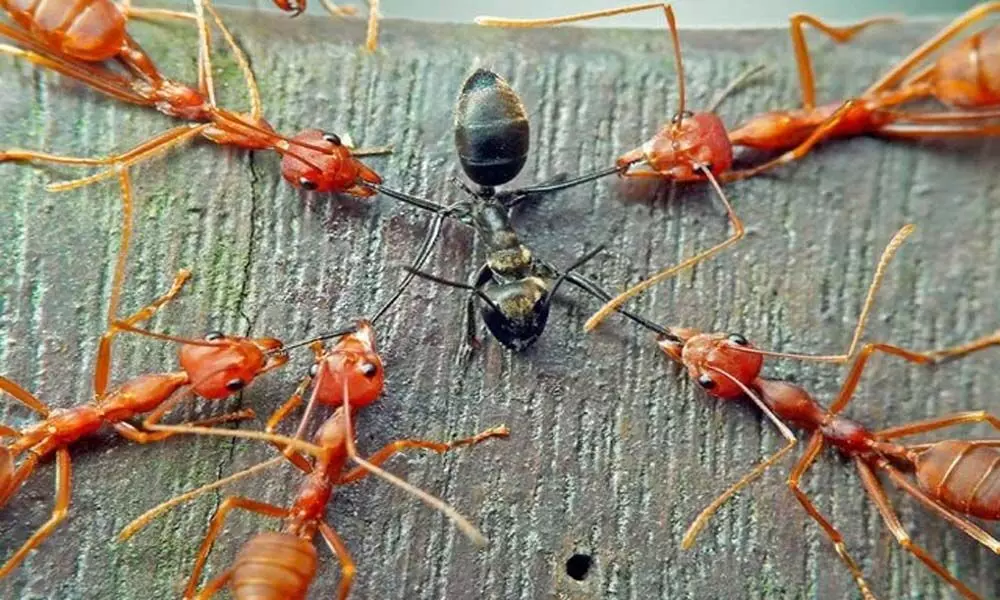Live
- Kerala LoP Satheesan urges CM Vijayan to pass resolution against draft UGC regulations
- Human Trafficking Awareness Day 2025: History, Significance, and Theme
- Hrithik Roshan reflects on legacy and inspiration
- Dhivyabharathi promises an unforgettable experience with ‘Kingston’
- India remains a bright spot in global GDP growth trajectory: Economists
- Director Kiruthiga Udhayanidhi encourages actors to embrace bold roles
- ‘Fateh’ review: Feast to action lovers
- Samantha overcomes health setbacks; shares updates on social media
- Kejriwal swindled Rs 2,026 cr through liquor scam, shows CAG report
- Angola reports 119 cholera cases, including 12 deaths
Just In
Scientists Are Appealing To The Public For Assistance In Renaming The Racist Insect


Scientists Are Renaming The Racist Insect
- Scientists are seeking assistance in renaming racial insects in order to eliminate labels that are unsuitable or hurtful.
- The caterpillars of the moth, which are native to Eurasia, have become a problem in North America in recent years, munching on hundreds of varieties of flora.
Scientists are seeking assistance in renaming racial insects in order to eliminate labels that are unsuitable or hurtful. As per ESA, the names were discarded because they featured an 'ethnic slur" and were recognized as bearing a pejorative phrase for the Romani people
In June, the Entomological Society of America (ESA) stated that the common names 'Gypsy moth' and 'Gypsy ant' for the moth Lymantria dispar and the ant Aphaenogaster araneoides have been taken off their list of Common Names of Insects and Related Organisms.
The caterpillars of the moth, which are native to Eurasia, have become a problem in North America in recent years, munching on hundreds of varieties of flora. Currently, one of the greatest outbreaks of Lymantria dispar in decades is sweeping through broad swaths of eastern Canada and the northeast.
The decision comes as the ESA spearheads the Improved Frequent Brands Project, which will examine and modify common bug names that don't fit their requirements, with the ESA clarifying that only the most problematic names will be changed. They announced new criteria in March to exclude any new words that refer to ethnic or racial groups or names that may incite fear; the policies also restrict geographic allusions, particularly for invasive species. It also serves as a guide for suggestions to modify current common names.
The goal of common names is to make communication between scientists and the public audiences they serve easier, said ESA President Michelle S. Smith, BCE. The ESA's list of authorized insect common names succeeds in this regard for the most part, although names that are offensive to excluded people work against that purpose. That is why they are trying to guarantee that all ESA-approved insect common names meet our diversity, equity, and inclusion guidelines.
The renaming campaign has been started with these two animals. The ESA is seeking public and scientific advice to help and rename the number of insects. The Mexican ricer borer, Texas citrus mite, African mole cricket, and Chilean recluse spider are among the pests that will be updated, according to the website's form.
Meanwhile, according to the ESA that working groups will be formed to promote new common names, with participants participating in identifying and providing replacements for insect common names that perpetuate negative ethnic or racial stereotypes. The ESA Committee on Insect Common Names and the ESA Governing Board must both approve proposed names.

© 2025 Hyderabad Media House Limited/The Hans India. All rights reserved. Powered by hocalwire.com






